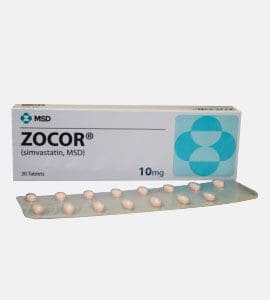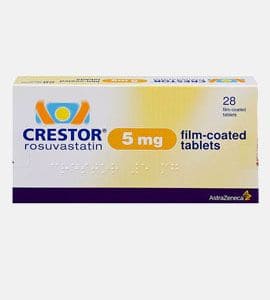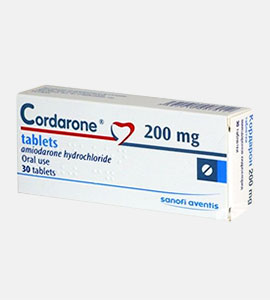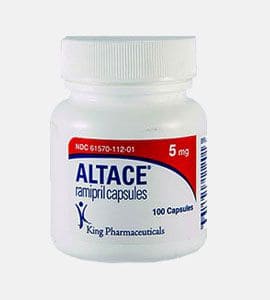Common Use
This medication suppresses the effects of vitamin K, which actively participates in blood clotting. It results in the prevention of blood clot formation. Blood clots can form in different parts of the body, such as in the vessels of the extremities after periods of immobility, in the vessels of the lungs, around artificial heart valves causing embolism and shortness of breath, depending on where they block a vessel. Coumadin is used for the treatment of patients with blood clots in the lower extremities, pulmonary embolism, atrial fibrillation, certain orthopedic surgeries such as knee or hip replacements, and myocardial infarction.
Dosage and Direction
Never take a double dose of Coumadin. It can be taken with or without food. Patients with liver or kidney dysfunction should take lower doses of the medication.
Precautions
Avoid eating cranberries or any cranberry herbal products, drinking alcohol, and participating in sports or activities that can result in bruising. If you need to undergo a lumbar puncture or any kind of surgery, inform your doctor about taking Coumadin.
Contraindications
Acute bleeding, liver or kidney failure, acute arterial hypertension, pregnancy.
Possible Side Effects
Side effects may include:
- Bleeding;
- Skin necrosis;
- Black, tarry stools;
- Digestive disorders;
- Nasal or gum bleeding;
- Heavy and persistent menstrual discharge;
- Unusual bruising;
- Hair loss.
Drug Interaction
Coumadin interacts with many drugs, and these interactions can be very dangerous. Commonly, medications such as aspirin, acetaminophen (Tylenol and others), alcohol, ibuprofen (Motrin), cimetidine (Tagamet), oxandrolone (Oxandrin), certain vitamins, and antibiotics should be considered during Coumadin treatment.
Missed Dose
If you missed a dose, take it as soon as you remember, but not if it is almost time for the next dose according to your schedule. If that is the case, skip the missed dose and simply return to your regular schedule. Do not try to compensate for a missed dose by taking an extra one. Never take a double dose of Coumadin.
Overdose
If you suspect that you took too much of the medication, you may observe excessive bleeding from cuts or wounds, blood in urine or stools, and heavy menstrual periods in women. Seek immediate medical attention in such cases.
Storage
Store at room temperature in a dark, dry place.
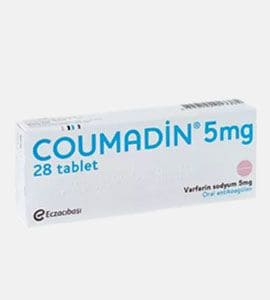

 English
English
 Español
Español
 Italiano
Italiano
 Čeština
Čeština
 العربية
العربية
 Deutsch
Deutsch
 Français
Français
 EUR
EUR


